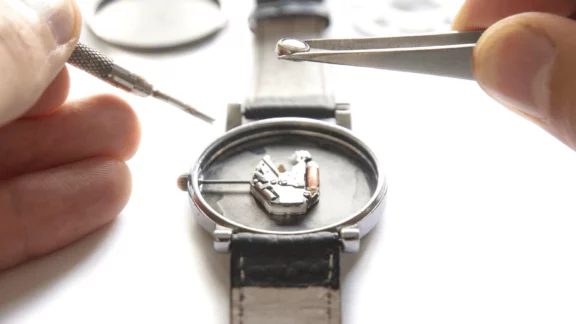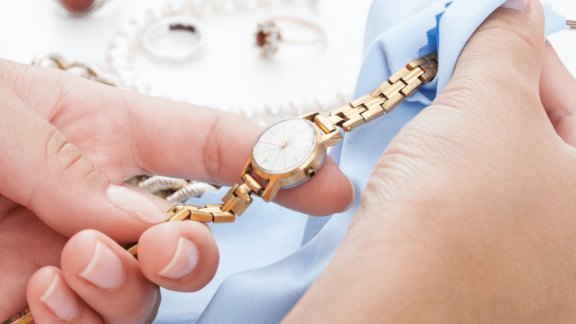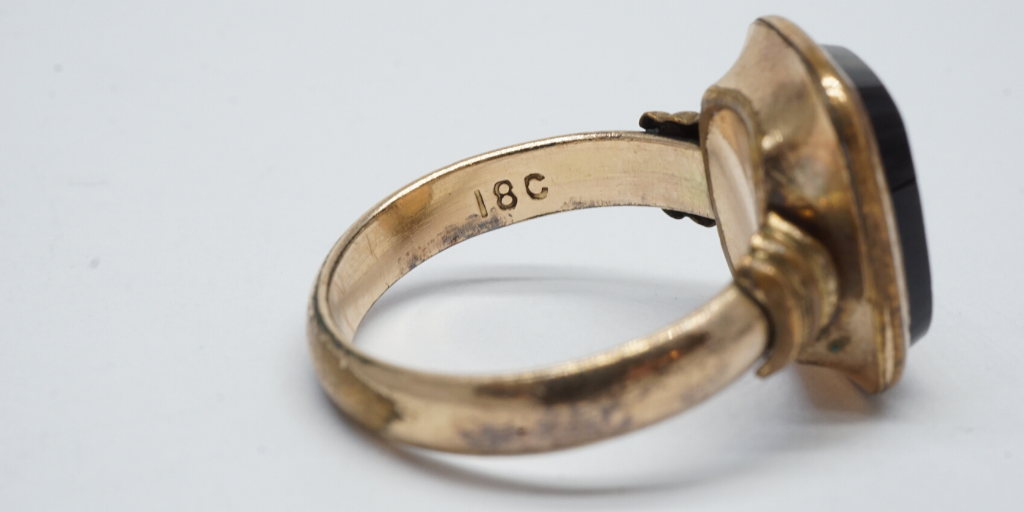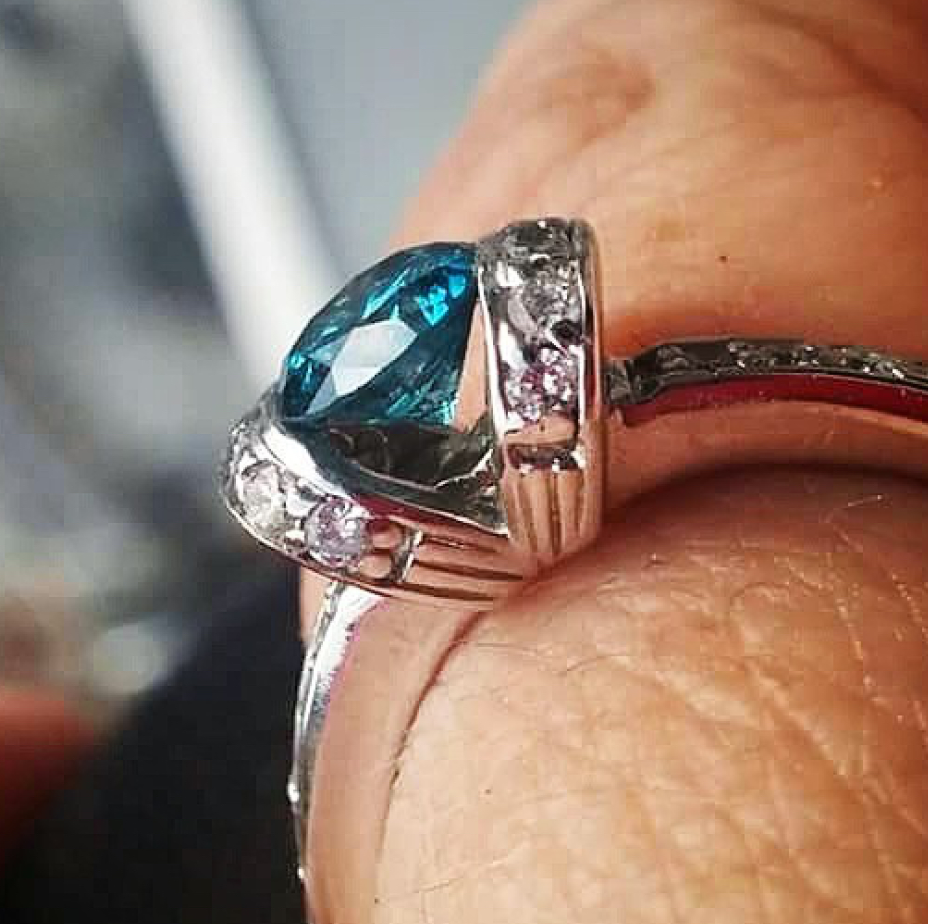How To Look After Your Quartz Watch
Written by Annabelle
September 6, 2019
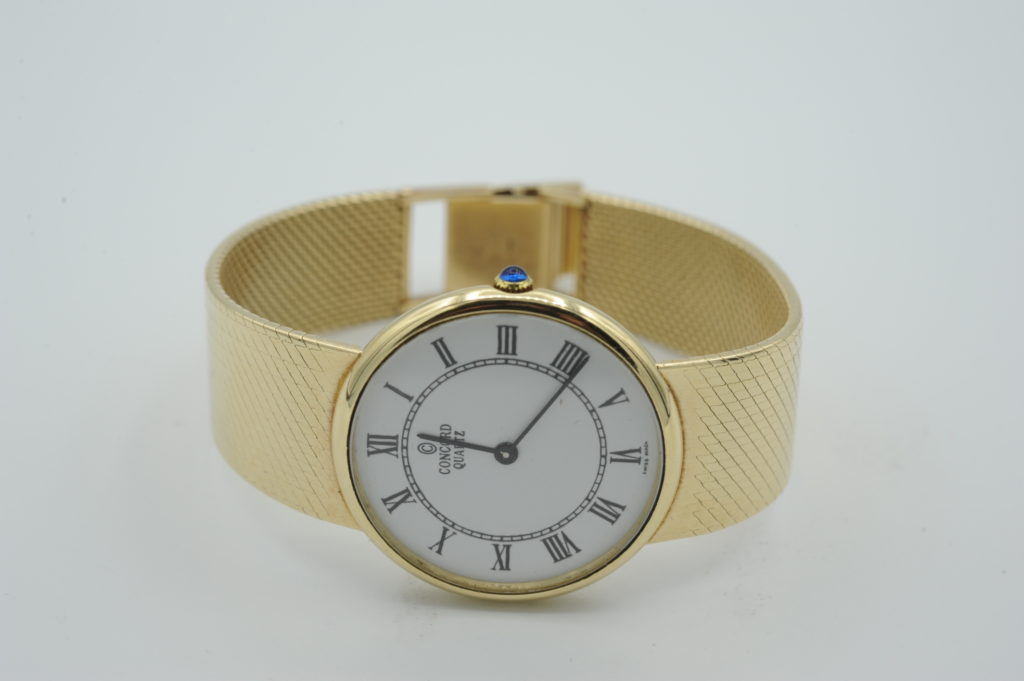
If you own a watch, chances are it's a quartz watch. These watches dominate the market because of how easy they are to make, and they're nice and efficient in terms of timekeeping. That doesn't mean that they don't need the occasional check-up, however. Learn more about quartz watch maintenance here.
Quartz Watches: A Brief Explanation
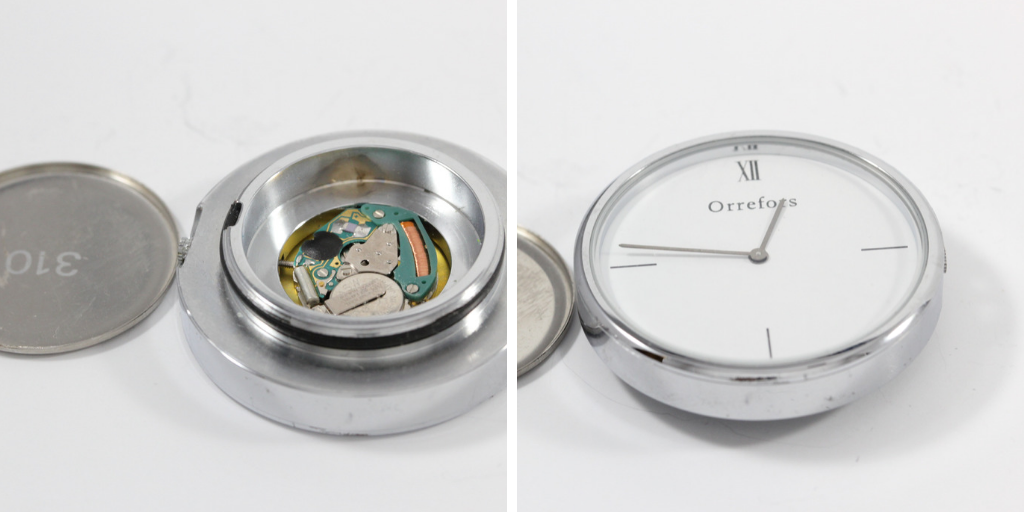
An Orrefors watch before and after battery replacement.
There are two kinds of watches that people can buy on the market- mechanical watches and quartz watches. While the mechanical watch has centuries of history, quartz watches are a more recent innovation. Despite what watch romantics might say about quartz watches in comparison to a mechanical timepiece, the modern quartz watch is an affordable and precise way to keep time.
The main difference between the two is the internal structure. Mechanical watches rely on an intricate network of gears and springs to run on physically-generated power from the motion of your wrist. In contrast, quartz watches run on a little bit of crystal science. A small piece of quartz within the watch vibrates as electricity is passed through it via a battery, and a circuit minimizes the vibrations to make the second hand tick on time.
Routine Check-Ups and Repairs for Quartz Watches
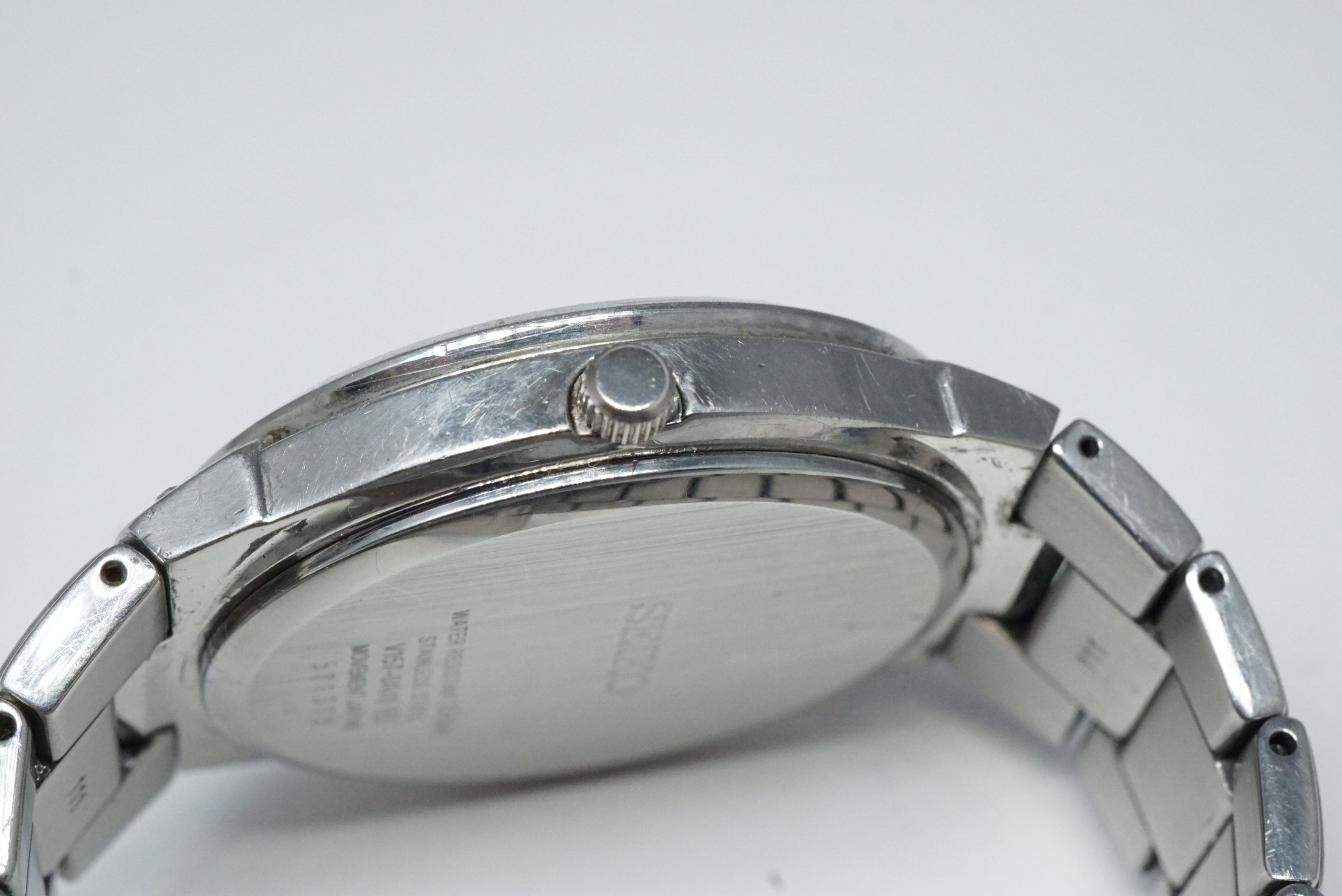
This Seiko had its stem and crown replaced.
Because of their simple construction, quartz watch maintenance isn't as fussy compared to the more fragile mechanical watches. That being said, they still need a battery replacement once in a while as they go dead after several years. Here's a list of watch repairs for quartz watches:
- Case and Band Polishing: Your wrist comes into contact with a number of surfaces a day. To restore the original shiny look of your watch consider either polishing or replacing it to remove the dings and scratches. We generally recommend polishing it up at least once a year to keep your watch in good shape.
- Stem and Crown Repair and Replacement: While you won't play around with the stem and crown on a quartz watch as much as a mechanical one, these itty bitty pieces of metal can get knocked off or go missing over the years. A jeweler can replace and restore the stem and crown so you can adjust your watch's time if needed.
- Battery Replacement: The most important check-up for quartz watches, since they need a functioning battery to run! Even if your watch seems to be working just fine, it's recommended to replace the battery every two to three years to avoid any issues.
- Pressure Test: Doing a pressure test is important for watches- the procedure checks to see if the seals of your watch are airtight. They need to be secure in order to properly protect the inside of your watches from dirt and water.
- Quartz Watch Overhaul: After six years or more, a quartz watch should be taken apart to overhaul the internal mechanisms. After all, there are still components in a quartz watch that need lubrication and cleaning to keep the watch running properly, and every time a battery is replaced that's an opportunity for unwanted debris to find its way into your watch's movement.
Quartz Watch Movement Overhaul Pricing
Overhauling a quartz watch isn't as expensive as checking a mechanical watch's movement, thanks to its comparative simplicity. Nevertheless, prices still vary depending on the extent of any damage and the watch brand. Keep in mind that the following starting prices are just for a general overhaul- component replacement prices vary from brand to brand.
| Price | Description |
| $60-120 | Low-grade quartz watch |
| $178 | Seiko |
| $130 | Fossil |
| $160 | Bulova |
| $400 | Concord |
| $160 | Citizen |
| $250 | Tag Heuer |
| $250 | Hamilton |
| $140 | Guess |
| $120 | Anne Klein |
| $170 | Swiss |
Things To Keep In Mind When Wearing Your Quartz Watch
While quartz watches aren't flimsy, there are a few things to keep an eye out for when you're wearing them.
- Avoid magnetic items: Things like an iPad or a TV can throw your watch out of balance as the magnetism messes with the interior mechanism. Try not to make direct contact when dealing with such electronics.
- Be careful with the temperature: Quartz crystals operate best at a regular room temperature. When subject to hot climates the watches slow down, and in cold weather they speed up.
- Stay away from water: While it won't hurt as much as destroying an expensive mechanical watch, you should still avoid doing anything such as swimming or showering with your quartz watch on. If you haven't tested your watch's seals, it's probably not a good idea to do so while on vacation by jumping into the nearest body of water.
You're all set to keep your quartz watch in good condition! With some occasional care, your timepiece will last for quite a while, making it a wonderful long-term investment. If you're ready to get started on some quartz watch maintenance, check out our services below!
